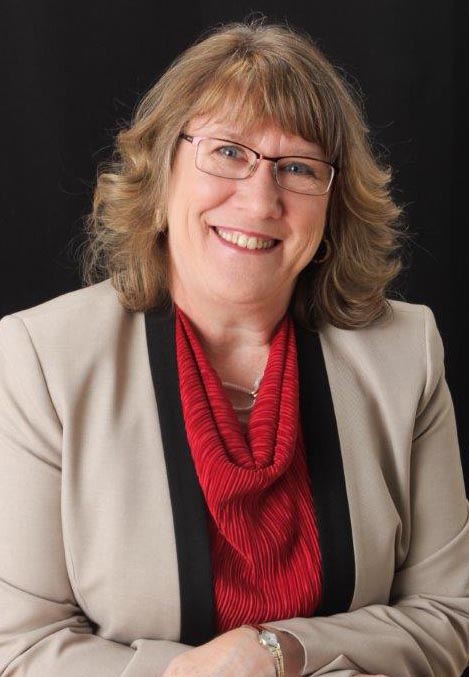
Christine Miller is the first Sacramento State professor to chair the statewide Academic Senate of the California State University (ASCSU) since John Livingston held the position 51 years ago.
Coincidentally, Miller – a longtime professor of communication studies at Sac State who goes by “Chris” – delivered the 2015-16 John C. Livingston Faculty Lecture on campus earlier this year. Her peers chose her for the honor, named for the late professor of government. Among her other honors: She received the Outstanding University Service Award in 2012, and a few months ago the California State Student Association (CSSA) named her faculty member of the year in the Innovation category.
As ASCSU chair, Miller will find herself outside the classroom setting for the first time in her 30 years of teaching.
Over the next year (or two, if she’s reelected, plus another year as immediate past chair), she will travel to the 23 CSU campuses and spend time at the Chancellor’s Office in Long Beach, where ASCSU is headquartered.
“Not to be in the classroom, I had to take a deep breath. Do I really want that?” she says. “Ultimately I thought: I can profoundly affect the students in my class each semester, but that’s maybe 100 students, and there are close to 500,000 students in the CSU. And that’s what drives me, knowing that the kinds of things I work on will have a broad-based impact.
“My duties will be to interact with the Chancellor and his cabinet and with local campuses to affect system-wide policy.”
Among the responsibilities of ASCSU, founded in 1963, are to promote academic excellence in the CSU, serve as the official voice for 24,000 faculty in matters of system-wide concern, and act as a consultant on the academic implications of any fiscal decisions in the CSU.
Miller’s theme for the year is “Finding the Balance.”
“We have four committees in the statewide academic senate – academic affairs, academic preparation and educational programs, faculty affairs, and fiscal and governmental affairs – and we’re trying to determine, in all areas we have an interest in, ways to balance competing interests, demands, and priorities,” she says.
For instance, Miller says, the faculty affairs committee is working on tenure density, which is the proportion of part-time to full-time faculty, throughout the CSU.
“Some campuses have better tenure density numbers than others,” she says. “It’s something we’re concerned about and are trying to find balance between the ratios of tenure-track faculty to contingent faculty.
“And the fiscal and governmental committee is interested in the state appropriations to higher education, in particular to the CSU. Whatever the issue is, we’re keying in to the notion of balancing competing demands.”
Miller has understood the need for balance her entire life. Her dad was in the Army and moved his family every two or three years. She graduated from high school in Oregon, the place she considers home, and earned her undergraduate degree from the University of Oregon. She started her master’s degree studies at the University of the Pacific before transferring to Southern Illinois University Carbondale. She taught for a year at Willamette University in Salem, Ore., and then got her doctorate at Penn State. All of her degrees were in speech communication.
She arrived at Sacramento State in 1987.
“When I got here,” she says, “it was meaningful to be in the same time zone as my folks, and I was ready to stop moving. So I’ve been here ever since. I love having the ability to affect the student experience and the quality the students are getting from their education, either personally as a professor in the classroom or in this role as chair of the statewide senate.”
President Robert S. Nelsen, in congratulating Miller on her new role as ASCSU chair, says: “Professor Miller has been a leader here on our campus for many years. We are happy to lend her to the state, but we want her back.” – Dixie Reid
